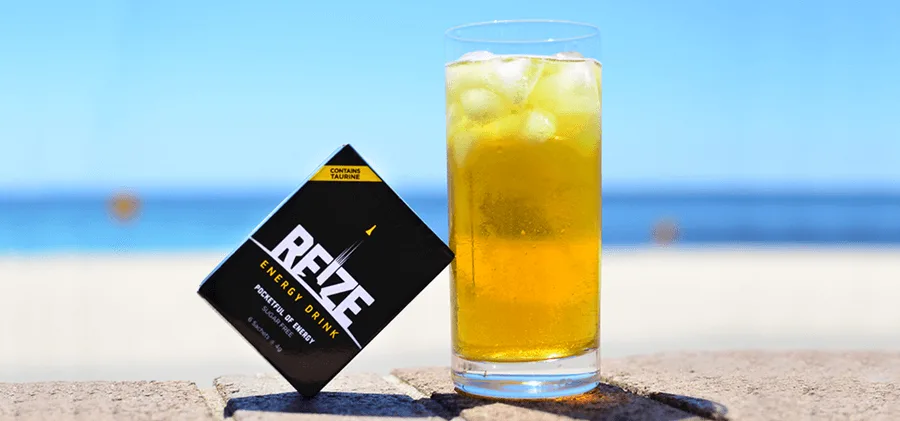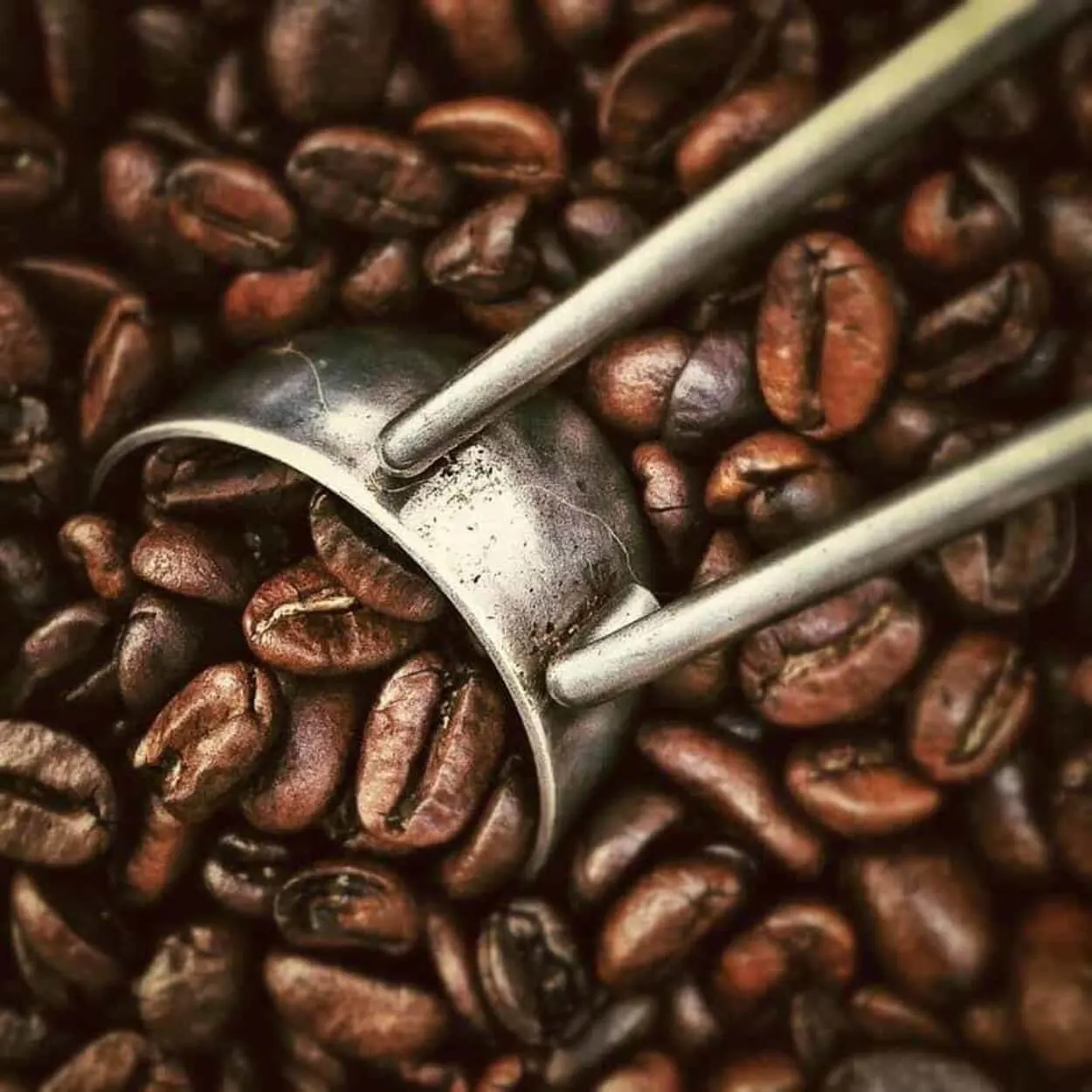Everyone has been there at some point. We use caffeine as a short-term fix to help us get through the day. However, I can assure you that consuming an excessive amount of caffeine will not provide a long-term solution.
That being said, caffeine addiction is most likely to happen to you which may have detrimental health, social connections, or other aspects of your life as a result of this habit and there’s only one solution. DISCIPLINE.
Learn all you need to know about caffeine addiction and how to break the habit in this article.
Caffeine
Caffeine is the world’s most consumed psychostimulant.
Coffee beans, tea leaves, and cocoa beans are the most common natural sources of caffeine. However, nowadays, sources like guarana berry and guayusa are also used to extract caffeine.
There are many benefits to drinking caffeine. Perhaps the most important benefit of caffeine is that it keeps you awake and makes you more energetic to get through your day.
As great as that all sounds, the energy high that you get from consuming caffeine can be very addictive and cause some serious problems to your well-being.
For a brief summary, here’s the recommended daily maximum amount of caffeine.
| Age | Recommended Daily Amount |
| Kids | 60-80 mg |
| Teenagers | 100 mg |
| 18 and above | 400 mg |
How long does it take to become addicted to caffeine?
There isn’t really a specified period of time when you actually become addicted to caffeine.
In fact, caffeine addiction varies form person to person depending on your physiological makeup and how much caffeine you consume.
What are the symptoms of caffeine addiction?
Caffeine, as we know, is a stimulant drug. While most of us generally enjoy the effects of caffeine such as an increase in energy levels and alertness, we’re often unaware of the negative outcomes that may come along with caffeine consumption.
For those who are addicted to caffeine, if you don’t get your daily dose, you might experience these unpleasant symptoms:
- Restlessness
- Nervousness
- Excitement
- Difficulty sleeping
- Agitation
- Muscle twitching
- The rambling flow of thoughts and speech
- Flushed face
- Increased heart rate
- Upset Stomach
- Increased need to urinate
How do you know if you are addicted to caffeine?
Here are some red flags that show you may have become too dependent on caffeine:
- Your head starts throbbing if you’ve missed your morning dose of caffeine.
- You’re grumpy before your morning caffeine fix.
- You find it hard to concentrate without consuming caffeine.
- Your daily dose of caffeine no longer gives you the same effects that it once did.
- You can’t go a day without caffeine.
Is caffeine addiction bad?
Caffeine addiction occurs when an excessive amount of caffeine is consumed over an extended period of time. It may have a negative impact on your health and other areas of your life.
Therefore, caffeine addiction is bad!
Many of us get into a routine of drinking caffeinated beverages for the sake of increasing our energy only to find ourselves tired when we’re not running on caffeine, or unable to sleep well during the night.
Sure, the energy boost that you get from caffeine is great, however, it can cause some negative effects such as irritability, anxiety, and trouble sleeping.
Although rare, caffeine addiction can also lead to cases of caffeine overdose.
What do you do if you think that you might be addicted to caffeine?
If you think that you’re addicted to caffeine, take these steps:
- Start off by calculating how much caffeine you actually consume in a day. This includes all sources of caffeine, be it energy drinks, coffee, food, chocolate, etc.
- Take note of any side effects that you experience when you miss your regular dose. If you’re experiencing any withdrawal symptoms like headaches or fatigue when you miss your dose of caffeine it might be a sign that you’re addicted to caffeine.
You don’t just become addicted to caffeine by consuming an excessive amount of it all at once. Dependence builds up over a long period of time.
Quitting Caffeine
Quitting caffeine isn’t likely to be easy, but it is much easier than quitting other things, like smoking.
The good news is that you only really have to make it through the first 2-3 weeks without caffeine and then you basically won’t have any remaining symptoms of caffeine withdrawal and you will feel fine without it.
However, it’s not recommended that you try to quit caffeine abruptly as it can shock your body and cause your withdrawal symptoms to become worse. Instead, try reducing your intake bit by bit and gradually weaning yourself off caffeine over a period of a month or more.
What happens when you quit caffeine?
You should understand that quitting caffeine when you’re addicted can cause some withdrawal symptoms that won’t be pleasant.
Caffeine withdrawal symptoms tend to vary from person to person depending on your physiological makeup and the amount of caffeine that you’re previously been consuming.
The most common withdrawal symptoms you may expect to experience when you quit caffeine are:
Fatigue. This is pretty obvious, especially for those whose bodies have become dependent on caffeine. As your body becomes dependent on caffeine it’s hard to be as active and full of energy as you were before you stopped taking caffeine. Generally, you’ll start to notice that you tend to fatigue more often and easily than you did before.
Changes in your mood. Caffeine is a great mood booster. This is because it has an effect on the chemicals in your brain. When you stop taking caffeine, the serotonin levels in your brain drop. This will impact your mood negatively and you might start to feel a little moodier than you used to.
Headaches. Reducing caffeine from your diet can cause migraine-like headaches for some people. The headaches generally will start behind your eyes and move towards the front of your head making it hard for you to carry out your daily activities.
Anxiety. Just like any addiction, the moment you try to remove the thing that you’re addicted to, you’ll start feeling anxious. One of the reasons for it is that your body has become mentally and physiologically dependent on the substance. So, if you stop taking caffeine abruptly, you might start to notice that your breathing becomes a little more laboured and difficult.
How long does caffeine withdrawal last?
Caffeine withdrawal symptoms generally begin within 12 to 24 hours of missing your regular dosage of caffeine.
This is usually when you’ll start to notice symptoms such as headache, restlessness, and anxiousness. After a day or two, the effects are at their highest and you might experience much more serious symptoms during this time.
However, most caffeine withdrawal symptoms generally last for about two to nine days. This means that if you can make it past the first nine days you’re going to be mostly in the clear. There is only one common symptom of caffeine withdrawal that may persist beyond 9 days and that’s headaches.
Headaches from caffeine withdrawal may last up to 21 days.
How to overcome caffeine addiction
If you are serious about overcoming your caffeine addiction there are a few ways that can help you reduce the chances of experiencing withdrawal symptoms as you make the transition to caffeine-free living:
Remove caffeine from your diet slowly.
Quitting caffeine abruptly can be counterproductive to successfully quitting as it will only make your withdrawal symptoms worse.
This means that you’re less likely to be able to stick with your plan and more likely to slide back into your old habits.
Start by keeping tabs on your overall caffeine consumption to get a clear picture of how much you’re consuming, what the sources are, and how much you might be able to cut back each day or week.
I recommend writing down EVERYTHING that you consume that contains caffeine for an entire week.
Once you’ve identified your overall caffeine consumption, start by reducing it little by little, especially if your body has developed a dependence on caffeine.
For starters, you can start by drinking decaf or lower-caffeinated beverages to slowly wean off your addiction.
Gradually reducing your caffeine consumption over a period of time will help you to successfully overcome your addiction without causing any withdrawal symptoms.
Set goals for yourself.
As we all know, breaking an addiction takes a tremendous amount of willpower.
In order to ensure your success in overcoming your caffeine addiction, set small goals for yourself to accomplish each week.
Setting small, achievable goals and accomplishing them helps to keep you motivated and on track.
Remain hydrated by drinking lots of water.
Caffeine can cause you to become dehydrated.
This is even more true if you’re experiencing caffeine withdrawal symptoms. Being dehydrated can worsen some of the symptoms of withdrawal such as headaches and fatigue.
Drinking lots of water and staying hydrated can help you to reduce the effects and symptoms of caffeine withdrawal.
Get enough rest.
When you’re cutting down your caffeine intake, your body no longer has the energy that it used to have from caffeine.
This can leave you feeling extremely fatigued and make it hard for you to carry on with your day-to-day routine.
To reduce the effects of caffeine withdrawal, it’s best to get a good night’s rest the day before.
Eat a more nutritious diet.
If you find yourself always feeling low on energy and sluggish when quitting caffeine, try eating a more nutritious diet.
Good dietary habits can help to decrease your risk of developing serious illnesses and also improve your mood and energy levels.
Your body needs good, healthy fuel from food to get going. Choosing to fuel your body with healthy and nutritious food will provide it with the nutrients it needs to function optimally.
Low-caffeinated Energy Drinks
If you’re looking for low-caffeinated energy drinks to kick-start your journey towards overcoming caffeine addiction, you’re in luck.
There are tons of great energy drinks that are available in the market that can help you to wean off caffeine.
Have a look at these:
If you’re looking for something different, you can try Mio Water drops!
Powdered energy drinks are a great option too.
They’re more versatile than ready-to-drink energy drinks, and you can add them to any drink of your choice.
Powdered energy drinks usually come with a much cheaper price tag than most popular energy drink brands:
- Zipfizz
- Advocare Spark
- REIZE (my personal favourite)
Thinking about trying powdered energy drinks?
I highly recommend that you try REIZE.
REIZE (10 out of 10)
REIZE is nothing like your conventional ready-to-drink energy drink.
It is much more versatile than most other energy drinks out there – you can mix it with almost any drink and it tastes amazing.

At 50mg of caffeine, REIZE contains a much more sensible amount of caffeine than most energy drinks but doesn’t compromise when it comes to the energy boost thanks to the other ingredients – which include taurine, ginseng, and B vitamins that all work great alongside caffeine.
The Crème de la crème?
REIZE is sugar-free and a healthier alternative than some other energy drinks. So, if you’re looking for a low-caffeinated energy drink to overcome your caffeine addiction, REIZE is ideal.
Low in caffeine, sugar-free, and a very affordable price tag!
REIZE ships right to your door for around $1 per drink.
You can choose monthly deliveries or one-time purchases to suit your needs, giving you the flexibility to choose what works best for you.
So what are you waiting for?
Try REIZE today, and get started on overcoming your caffeine addiction.

